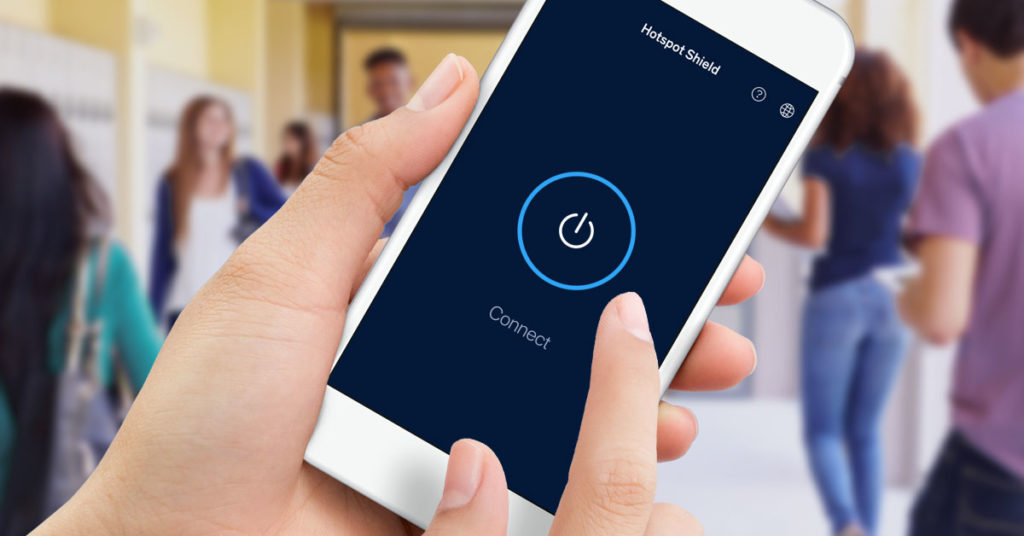How to get a Finnish IP address
The easiest way to improve your digital privacy is to switch your IP address using a VPN. We’ll …

Most of us shop online without ever thinking of the possible consequences. As the holidays ramp up, it’s important that you understand how to stay safe online shopping and protect yourself from hackers and identity thieves. After all, people get hacked online every 34 seconds.
Yes, you read that right.
So without further ado, here are some essential tips to help you stay safe while you’re shopping for the best deals.

Hackers are known for stealing information by hacking into public WiFi connections. Public WiFi—like you’d find at your local coffee shop, for instance—is unencrypted, which means anyone connected to the same network can see everything you’re doing online (including your passwords and sensitive account details).
The best way for safe online shopping is to protect yourself on public WiFi. Only do online shopping with a VPN. Hotspot Shield VPN is a free app that instantly encrypts your connection so you can browse privately and securely with just a click of a button. It is the single best way to protect yourself when shopping online.
(Top Tip: Here’s a secret tip you might not be aware of. Hotspot Shield VPN not only keeps you safe, but it can also help you snag cheap deals by changing your virtual location. Some sites offer cheaper rates to visitors from different locations.)

Make sure that any site you visit is secure. To know it’s secure, you should look for httpS:// instead of http://. The “s” indicates that the site is encrypted. Additionally, make sure that the site is legit. Hackers often create fake sites by changing up URLs so that they look real. In reality, they are merely set up to steal your credit card information. An example of a fake site URL could be: C0ach.com vs Coach.com.
Clicking on shortened URLs could be a big mistake. A short URL is often created via a specific tool to provide a shorter, cleaner link. The problem is, you can’t tell where that link takes you without clicking on it. The same applies to linked text in an email or article. If you do not trust the site you’re on, do not click the link.
Here’s an example: Click here to get 75% off!
If you really want to know where the link takes you, right click it, copy, and then paste the link into a document and examine if the real URL looks legit. In this case, you’ll see that it takes you to HotspotShield.com, so you can be sure that it’s safe.
Always keep a close eye on your credit card activity. If you spot anything unusual, make sure to immediately notify your credit card company. You can also look into notifications to alert you of purchases over a certain amount. It’s worth remembering that not every criminal will steal your information and then go out and buy an expensive TV. Initially, the thefts may be small enough that you don’t even notice.
Another thing to think about is getting a virtual credit card. This is a credit card that you can only use online. You can set this card to have a certain amount of money on it, or even to expire after Cyber Monday.
If your passwords are weak, hackers can easily break into your accounts. Make sure you have a unique password for every site and use a password manager to remember complicated passwords. If you think your password is secure, you might be surprised by how sophisticated hackers are at stealing random passwords. Here’s how they do it, along with tips to improve your password security.
Hackers also like to put links in emails to trick people into clicking on them. When you fall for this trick, you could end up having your device infected with malware. The malware can then be used so a hacker can track what you’re doing online, find out your passwords, and steal your bank account details.
To know if a link is legit, look to see where it leads. Are there any misspellings? This is a sign of a bad link. Also, look at the email itself…if it seems “off”, contains typos or odd grammar, it’s probably spam. Don’t just assume that because the email says it’s from “Apple Support,” for instance, that it actually is. Hackers are becoming increasingly sneaky.
If you haven’t updated your browser in a while, now is the time. These updates often contain security fixes, and it’s important that you have them installed in order to protect yourself.
Finally, don’t feel the need to give out every piece of information a website asks for. If something is marked “optional,” don’t offer it. Stick to the bare minimum. The less you tell them, the lower your risk.
By following these tips, you’ll have a much greater chance of being safe online shopping and snagging the best deals available. Remember: Only do online shopping with a VPN, be super careful about what links you click, update your passwords, and keep a close eye on your credit card account. By taking the proper precautions, you’ll be one step ahead of the game.

